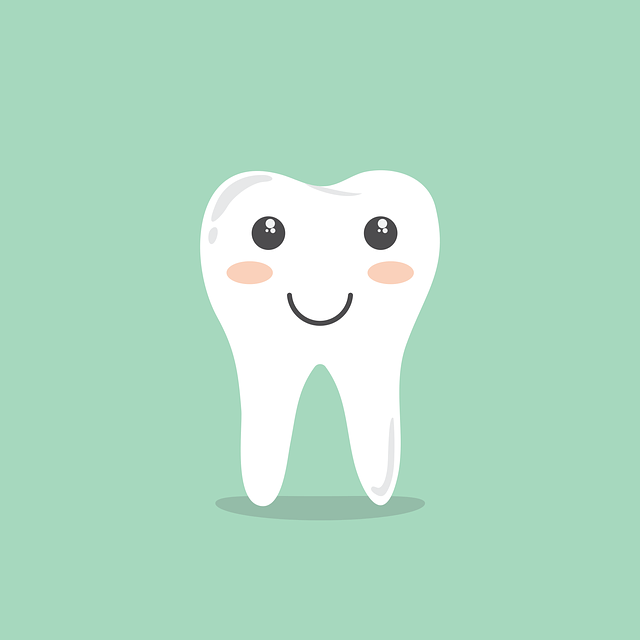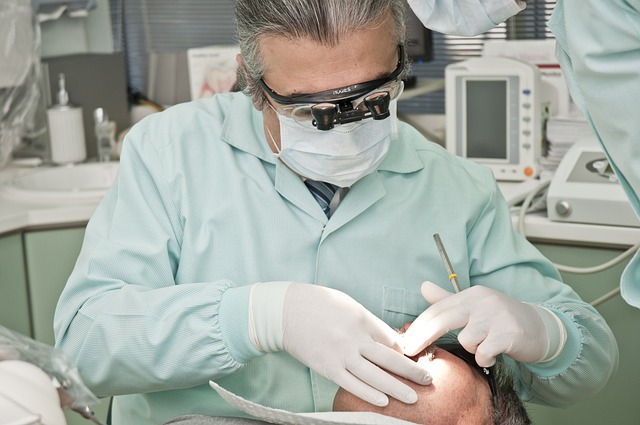Do Periodontists Extract Teeth? Get the Facts & Friendly Insight!
Welcome to our informative article titled “Do Periodontists Extract Teeth? Get the Facts & Friendly Insight!” If you have ever wondered about the role of periodontists when it comes to tooth extraction, you’ve come to the right place. We understand that visiting a periodontist can be a daunting experience, but fear not, as we aim to provide you with the essential facts in a friendly tone. Whether you’re facing potential tooth extraction or simply curious about periodontal procedures, join us as we delve into this topic with clear, concise information and a warm and welcoming approach. So, let’s uncover the truth, dispel any misconceptions, and gain insight into the world of periodontics!
1. Understanding the Role of a Periodontist: A Friendly Guide
In this section, we will delve into understanding the important role of a periodontist. Whether you are already familiar with periodontists or are just curious about their work, this friendly guide aims to provide you with valuable insights.
A periodontist is a dental specialist who focuses on preventing, diagnosing, and treating conditions that affect the supporting structures of teeth, such as the gums and bones. They are experts in maintaining optimal gum health and treating gum diseases, such as gingivitis and periodontitis. Here are a few key points to help you get a better grasp of the role of a periodontist:
- Extensive Training: Periodontists undergo additional years of advanced training after completing dental school. This specialized education equips them with the knowledge and skills needed to tackle complex gum-related issues effectively.
- Gum Disease Treatment: Periodontists play a crucial role in diagnosing and treating gum diseases. These specialists can perform procedures like scaling and root planing, pocket reduction surgery, and gum grafts to restore gum health.
- Dental Implants: When it comes to tooth replacement, periodontists are well-versed in dental implantology. They can expertly place and maintain dental implants, providing patients with a long-term solution for missing teeth.
Understanding the role of a periodontist is essential for maintaining excellent oral health. Whether you are seeking preventive care or require specialized treatment, periodontists are here to ensure your gums and supporting structures remain healthy for years to come.

2. Breaking the Myths: Do Periodontists Really Extract Teeth?
Let’s tackle a common misconception – most people think that periodontists are solely focused on extracting teeth. The truth is, periodontists are highly trained dental professionals who specialize in the prevention, diagnosis, and treatment of periodontal disease.
Periodontists are experts in managing gum health, which is crucial for maintaining a healthy smile. They provide comprehensive periodontal treatments, including non-surgical therapies like scaling and root planing to remove plaque and tartar buildup. Periodontists are also skilled in conducting surgical procedures when necessary, such as gum grafting and dental implants, to restore gum and bone tissues.
Another important aspect to highlight is that extracting teeth is never the first choice for periodontists. Their primary goal is to save your natural teeth whenever possible. Through their expertise in periodontal treatments, they can help restore the health of gum tissues, reduce inflammation, and strengthen the supporting structures of your teeth. So, if you’ve been thinking that periodontists are all about tooth extraction, now you know the real deal!

3. The Truth Unveiled: What Services Do Periodontists Offer?
Periodontists are specialized dentists who focus on the prevention, diagnosis, and treatment of gum diseases, and the overall health of the structures that support your teeth. If you’re wondering what specific services they provide, we’ve got you covered!
Here are some of the essential services you can expect from a periodontist:
- Gum Disease Treatment: Periodontists excel in diagnosing and treating all stages of gum disease. They offer deep cleaning procedures like scaling and root planing to remove plaque, tartar, and bacteria that contribute to the infection. They also provide guidance on proper home oral care to prevent the disease from progressing.
- Dental Implants: Periodontists are experts in dental implants, which are a permanent solution for replacing missing teeth. They evaluate your oral health, determine appropriate implant placement, and perform the surgical procedure required for implant placement and restoration, ensuring a healthy and functional smile.
- Gum Recontouring: Using advanced techniques, periodontists can reshape and recontour your gum line to improve the appearance of your smile. If you have a “gummy smile” or uneven gum line, they can carefully remove excess gum tissue, resulting in a more harmonious and aesthetically pleasing smile.
- Periodontal Maintenance: Periodontists provide ongoing monitoring and maintenance for patients with gum disease or a history of periodontal treatments. They conduct regular check-ups to ensure your gums remain healthy, perform cleanings, and offer advice on how to preserve and improve your oral health.
These are just a few of the many valuable services that periodontists offer. With their expertise, you can trust them to help you achieve optimal oral health and maintain a confident smile!

4. When Tooth Extraction Becomes Necessary: Factors to Consider
There are several factors to consider when tooth extraction becomes necessary. Firstly, the severity of the dental issue is an important factor. If a tooth is extensively decayed or damaged beyond repair, extraction may be the only viable solution. Similarly, if a tooth is causing severe pain or discomfort that cannot be alleviated through other dental treatments, extraction may be necessary to provide relief.
Another factor to consider is the position of the tooth in the mouth. If a tooth is impacted, meaning it is lodged in the gums or jawbone and cannot erupt properly, extraction may be recommended. Additionally, overcrowding of the teeth can lead to alignment issues and other oral health problems. In such cases, extracting a tooth may be necessary to create more space for proper alignment and prevent complications.
- Bone Density and Overall Health: The strength and density of the jawbone is crucial for successful tooth extraction. Poor bone density may require additional procedures like bone grafting to ensure successful extraction and prevent complications.
- Age and Growth: The age of the patient plays a role in determining whether extraction is the best course of action. In some cases, it may be beneficial to extract a tooth in younger patients to prevent future dental issues.
- Alternative Treatments: Before deciding on extraction, it’s essential to explore all possible alternatives. Your dentist may suggest treatments like root canal therapy or dental crowns to salvage the tooth and maintain your oral health.
Understanding these factors can help you make an informed decision and ensure the best possible outcome when tooth extraction becomes necessary.

5. Exploring Alternatives: Non-Extraction Solutions by Periodontists
Non-extraction solutions offered by periodontists can be a great alternative for patients seeking to avoid tooth extraction. These solutions focus on preserving the natural teeth and gums, promoting oral health in the long term. Here are some non-extraction treatments commonly used by periodontists:
- Gum Disease Therapy: Periodontists specialize in treating gum diseases such as gingivitis and periodontitis. Through deep cleaning, scaling, and root planing, they remove plaque, tartar, and bacteria from the teeth and gums, helping to prevent further damage and promoting gum healing.
- Root Surface Debridement: This procedure involves removing the infected tissues and bacteria from the root surfaces of the teeth. By smoothing the roots, periodontists encourage healthy reattachment of the gum tissue, preventing the progression of gum disease.
- Gum Grafting: For patients with receding gums, periodontists may perform gum grafting. In this procedure, healthy gum tissue from another area of the mouth (or a donor) is transplanted to cover exposed tooth roots, preventing sensitivity, improving aesthetics, and aiding in maintaining a healthy mouth.
These non-extraction solutions offered by periodontists are tailored to each patient’s specific oral health needs. By exploring these alternatives, patients can often find effective and less invasive options to address their dental concerns. Consulting with a periodontist can help determine the best course of action for preserving and improving oral health without the need for extractions.
6. The Importance of Early Intervention: How Periodontists Can Save Your Teeth
Early intervention is crucial when it comes to maintaining optimal oral health. Thankfully, periodontists possess the expertise and tools necessary to identify and treat gum disease before it leads to tooth loss. By seeking early intervention, you can save your teeth and ensure a lifetime of healthy smiles.
So, why is early intervention so important? Let’s explore:
- Prevention is better than cure: Detecting and treating gum disease at its earliest stages can prevent further damage to the gums and surrounding structures.
- Preserve your natural teeth: By addressing gum disease promptly, periodontists can save your natural teeth from extraction, preserving your bite and overall oral function.
- Enhance your overall health: Gum disease has been linked to various health issues such as heart disease, diabetes, and even preterm birth. By taking action early on, you can reduce the risk of developing these systemic conditions.
- Save money in the long run: Treating gum disease early is often less invasive and less expensive than advanced interventions like dental implants or dentures. By investing in early intervention, you can avoid costly dental procedures down the line.
Remember, your periodontist is here to help! Don’t hesitate to schedule regular check-ups to catch any gum disease symptoms early and maintain your oral health. By doing so, you can keep your teeth strong, your smile radiant, and your overall well-being in check.
7. Your First Visit to a Periodontist: What to Expect and Ask
When visiting a periodontist for the first time, it’s normal to feel a bit anxious about what to expect. However, understanding the process can help alleviate any concerns and make the experience more comfortable. Here are a few things to keep in mind and questions to ask during your initial visit:
- Medical History: Be prepared to provide your periodontist with a detailed medical history, including any current medications, allergies, and previous dental treatments. This information will help them understand your specific needs and tailor the treatment accordingly.
- Oral Examination: During your visit, the periodontist will carefully examine your teeth, gums, and overall oral health. They may also take X-rays or perform additional diagnostic tests to assess the condition of your gums and supporting structures.
- Treatment Options: Based on your examination, the periodontist will discuss potential treatment options for your specific condition. They will explain the procedures involved, the timeline, and the expected outcomes. Feel free to ask questions and seek clarification to ensure you fully understand the recommended course of action.
Remember, a visit to the periodontist is an important step towards improving your oral health. By being proactive, asking questions, and following the recommended treatment plan, you’re taking positive strides towards a healthier smile!
8. The Art of Tooth Extraction: How Periodontists Ensure Comfort and Safety
When it comes to tooth extraction, periodontists are experts in providing a comfortable and safe experience for their patients. With their specialized knowledge and skills, they focus on minimizing pain and maximizing patient well-being during the procedure.
- Thorough Examination: Before an extraction, the periodontist meticulously examines the tooth and surrounding tissues. This allows them to identify any potential complications or underlying issues that may affect the extraction process.
- Tailored Anesthesia: Ensuring patient comfort is a top priority for periodontists, which is why they offer various anesthesia options. Whether it’s local anesthesia, conscious sedation, or general anesthesia, they determine the most suitable approach based on the patient’s individual needs and preferences.
- State-of-the-Art Equipment: Periodontists utilize advanced technology and equipment to perform extractions with precision and efficiency. From digital x-rays to dental lasers, these tools aid in minimizing discomfort, reducing healing time, and improving overall patient outcomes.
Furthermore, periodontists prioritize infection control to maintain a sterile environment throughout the procedure. They follow strict protocols, including the use of disposable instruments, proper sterilization procedures, and adherence to sanitation guidelines.
9. Aftercare Essentials: Nurturing Your Smile Post-Extraction
After your tooth extraction, it’s important to take care of your smile to promote healing and minimize discomfort. Here are some essential aftercare tips to help you nurture your smile post-extraction:
- Control bleeding: Gently bite down on a clean piece of gauze provided by your dentist to control any bleeding. Replace the gauze as needed until the bleeding stops.
- Manage swelling: Reduce swelling by applying an ice pack or cold compress to the affected area. Keep it on for 10 minutes, then remove it for 20 minutes. Repeat this process for the first 24 hours.
- Take prescribed medication: If your dentist has prescribed medication, be sure to take it as directed. This will help manage pain and prevent infection.
Additionally, it’s crucial to maintain good oral hygiene during the healing process. Here are a few essential steps to follow:
- Brush gently: Carefully brush your teeth, avoiding the extraction site, for the first 24 hours. Afterward, gently brush the area with a soft-bristled toothbrush.
- Rinse with saltwater: Rinse your mouth with warm saltwater solution multiple times a day, especially after meals. Mix 1/2 teaspoon of salt in 8 ounces of warm water.
- Avoid tough foods: Stick to soft foods like yogurt, mashed potatoes, and smoothies for a few days. Avoid chewing on the extraction site to prevent reopening the wound.
10. Maintaining Dental Health: Long-term Strategies Guided by Periodontists
When it comes to maintaining dental health, periodontists are the experts to turn to. These specialists in gum health are equipped with the knowledge and skills to help you achieve a healthy and beautiful smile for the long term. To ensure optimal dental health, here are some strategies guided by periodontists:
1. Regular dental check-ups: Visit your periodontist for regular check-ups and cleanings. This allows them to monitor your dental health, detect any potential issues early on, and provide necessary treatment.
2. Brushing and flossing: Proper oral hygiene plays a crucial role in maintaining dental health. Brush your teeth twice a day using a soft-bristled toothbrush and fluoride toothpaste. Don’t forget to floss daily to remove plaque and food particles from between your teeth.
3. Healthy diet: A balanced diet is not only essential for your overall health but also crucial for dental health. Avoid excessive consumption of sugary and acidic foods, as they can contribute to tooth decay. Instead, opt for a diet rich in fruits, vegetables, whole grains, and lean proteins to promote healthy teeth and gums.
4. Avoid tobacco products: Smoking and chewing tobacco can lead to gum disease, oral cancer, and tooth loss. By avoiding these harmful habits, you can significantly improve your dental health.
5. Stress management: Chronic stress can affect your oral health by causing teeth grinding or jaw clenching. Practice stress management techniques like exercising, meditating, or seeing a therapist to reduce the impact on your dental well-being.
Frequently Asked Questions
Q: Do periodontists extract teeth?
A: Yes, periodontists are dental specialists who are trained and skilled in performing tooth extractions as part of their comprehensive approach to treating gum diseases and maintaining oral health.
Q: Why would a periodontist extract a tooth?
A: Tooth extraction is typically a last-resort treatment option. A periodontist may recommend removing a tooth for various reasons, such as advanced gum disease (periodontitis), tooth decay, severe tooth infection, overcrowding, or to create space for orthodontic treatment.
Q: Are there any alternatives to tooth extraction?
A: Whenever possible, periodontists strive to save natural teeth. They will explore various treatment options before considering extraction, such as non-surgical periodontal therapy, root canal treatments, gum grafting, or dental implants to replace missing teeth.
Q: What is the process of tooth extraction with a periodontist?
A: Before the procedure, your periodontist will evaluate your overall oral health and any potential complications. They will then administer local anesthesia to ensure your comfort during the extraction. Once the area is numb, the tooth is carefully removed using specialized instruments. Following the procedure, the periodontist will provide detailed aftercare instructions for optimal healing.
Q: Will tooth extraction be painful?
A: Your periodontist will ensure that you remain comfortable throughout the procedure by using local anesthesia to numb the area. You may experience some pressure during the extraction, but you should not experience pain. After the procedure, any post-operative discomfort can typically be managed with over-the-counter pain medications.
Q: How long does it take to recover from a tooth extraction?
A: The recovery time varies depending on the complexity of the extraction and individual healing abilities. In general, the initial healing phase may take a few days. Complete healing of the extraction site may take several weeks. Following your periodontist’s aftercare instructions will promote optimal healing and reduce the risk of complications.
Q: Can a tooth be replaced after extraction?
A: Yes, there are multiple tooth replacement options available after an extraction. Periodontists can discuss various options such as dental implants, bridges, or removable dentures based on your specific needs and preferences. They will work with you to create an individualized treatment plan to restore your smile.
Q: How can I prevent the need for tooth extraction?
A: Maintaining good oral hygiene practices, including regular brushing, flossing, and routine dental check-ups, is crucial in preventing gum diseases and tooth decay. By following a healthy lifestyle, avoiding tobacco use, and addressing dental problems promptly, you can minimize the risk of needing tooth extraction.
Q: What should I look for in a periodontist?
A: When choosing a periodontist, it’s important to consider their qualifications, experience, and patient reviews. Look for a specialist who is board-certified or has undergone extensive training in periodontology. A reputable periodontist should have a friendly demeanor, excellent communication skills, and a track record of successful treatments.
Conclusion
In conclusion, we hope this comprehensive guide has shed light on the common question, “Do periodontists extract teeth?” By now, you understand that extraction is just one of the many specialized procedures that periodontists may perform to restore and maintain optimal oral health. Remember, their primary goal is to help you preserve your natural teeth whenever possible, leveraging their expertise and cutting-edge techniques.
Next time you find yourself in need of periodontal care, there’s no need to worry. Reach out to a periodontist, and rest assured that you will be in skilled and caring hands. They will thoroughly assess your situation, discuss all possible treatment options, and empower you to make informed decisions about your oral health journey.
Whether you require extractions, gum disease treatment, dental implants, or any other periodontal services, remember that a healthy smile starts with you. Maintain a consistent oral hygiene routine, schedule regular check-ups, and be proactive in addressing any concerns promptly. Your dedication, combined with a periodontist’s expertise, will ensure that you enjoy a lifetime of happy, healthy smiles.
Don’t let misperceptions or anxiety hold you back. Embrace the facts and knowledge we’ve shared, and confidently embark on your periodontal path. Keep smiling, and bon voyage to your dental health journey!






